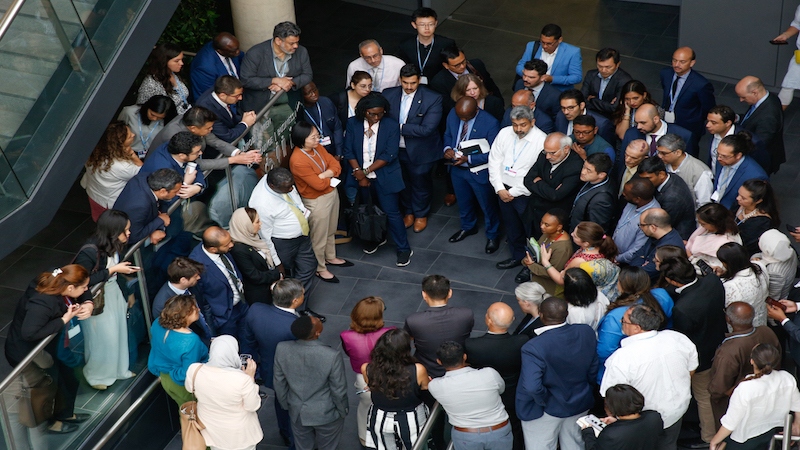In fraught nations, developing countries wanted to focus on specific targets, while developed nations only wanted to talk about structure
Talks over setting ambitious goals for the world’s efforts to adjust to the effects of climate change were rescued at the very last minute during climate talks in Bonn, following bitter divisions between developing and developed countries.
The fraught negotiations in Germany centered on the framework for the global goal on adaptation, an initiative aimed at enhancing nations’ resilience to extreme weather events, flooding, droughts and sea level rise.
Nations reached a compromise on the outcome of the two-week-long discussions, averting the real possibility of having to start all again from scratch at Cop28.
In that scenario – negotiators and observers told Climate Home – it would have been virtually impossible to find an agreement on adaptation goals at the summit in Dubai.
“That would have been a real catastrophe”, a negotiator from a country at the forefront of the climate crisis told Climate Home.
Contrasting expectations
Argentine negotiator Pilar Bueno Rubial said from the beginning it was clear the two factions had entered the talks with diverging expectations.
“Developed countries just wanted to start the conversation, while developing nations wanted to focus on the substance”, she told Climate Home.
World Bank set to take on risk of insuring carbon credits amid market upheaval
A coalition of 135 developing countries, called G77+China, wanted to agree on an eight page draft text that included a list of options for specific adaptation targets.
These included measures to preserve land and water, to protect all humanity with early warning systems for hazardous events by 2027, and to enhance the global population’s resilience to the effects of climate change by at least 50% by 2030
“For us, this captured the conversation fairly and laid the foundation for an ambitious agreement in Dubai”, a negotiator from a developing country told Climate Home.
But rich nations, led by the US, EU and the UK, pushed instead for a one-page text focussing only on the main structure of a future decision without outlining detailed measures, according to four people in the negotiating room.
This option delegated the development of specific targets to future workshops. In their own submissions, the EU and the US specifically pushed for the inclusion of no specific targets.
UN head Guterres contradicts Cop28 host on fossil fuel phaseout
To complicate matters further, Bueno Rubial claimed that adaptation negotiations had been “taken hostage” as part of broader divisions between the two blocks over whether emission reductions talks and climate finance should be on the official agenda in Bonn.
The contrasting positions were clearly reflected in the options put forward by the two sides for a final decision to be adopted at the end of the Bonn talks.
Adaptation struggle
Defining what adaptation is and how to measure it has always been a complicated task. Unlike efforts to cut the amount of greenhouse gas in the atmosphere, less clear metrics are available to track the many diverse activities that can be called adaptation.
Measures can include seawalls, air conditioning, early warning systems, improved mobile phone and internet coverage and changes to farming methods.
The Paris Agreement established a global goal on adaptation, but stopped short of defining its content. Six years later, at Cop26 countries agreed to launch a two-year long work program to solve this problem and turn a vague commitment into concrete actions.
The body is due to end its work in Dubai, where developing countries are keen to achieve ambitious targets. This – they hope – will in turn lead to more money being invested in measures to boost resilience to climate change.
The United Nations E
Read More

